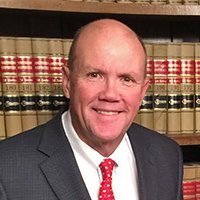Midland City Misdemeanor Lawyer, Alabama
Not enough matches for Midland City Misdemeanor lawyer.
Below are all Midland City Criminal lawyers.
William B. Matthews
✓ VERIFIEDDivorce & Family Law, Criminal, Accident & Injury, Business, Estate
William Matthews, Jr. is a practicing lawyer in the state of Alabama specializing in Divorce & Family Law; Criminal; Accident & Injury; Bankruptcy & D... (more)
Scott Smith
✓ VERIFIEDDivorce & Family Law, Criminal, Estate
Scott Smith became an attorney out of his desire to help others. “Too many times individuals are faced with legal situations they are unable to nav... (more)
Thomas S. Smith
✓ VERIFIEDDivorce & Family Law, Criminal, Estate
ABOUT OUR DOTHAN, ALABAMA LAW FIRM When you hire the team at Smith Law Firm, to work on your behalf, you have the benefit of knowing that we will tak... (more)
Angela Joy Mason
Lawsuit & Dispute, Social Security, Employment, Criminal, Accident & Injury
Status: In Good Standing
Mark D. Johnson
Premises Liability, DUI-DWI, Constitutional Law, Car Accident
Status: In Good Standing
Bryan Scott Blackwell
DUI-DWI, Family Law, Personal Injury, Social Security -- Disability
Status: In Good Standing




